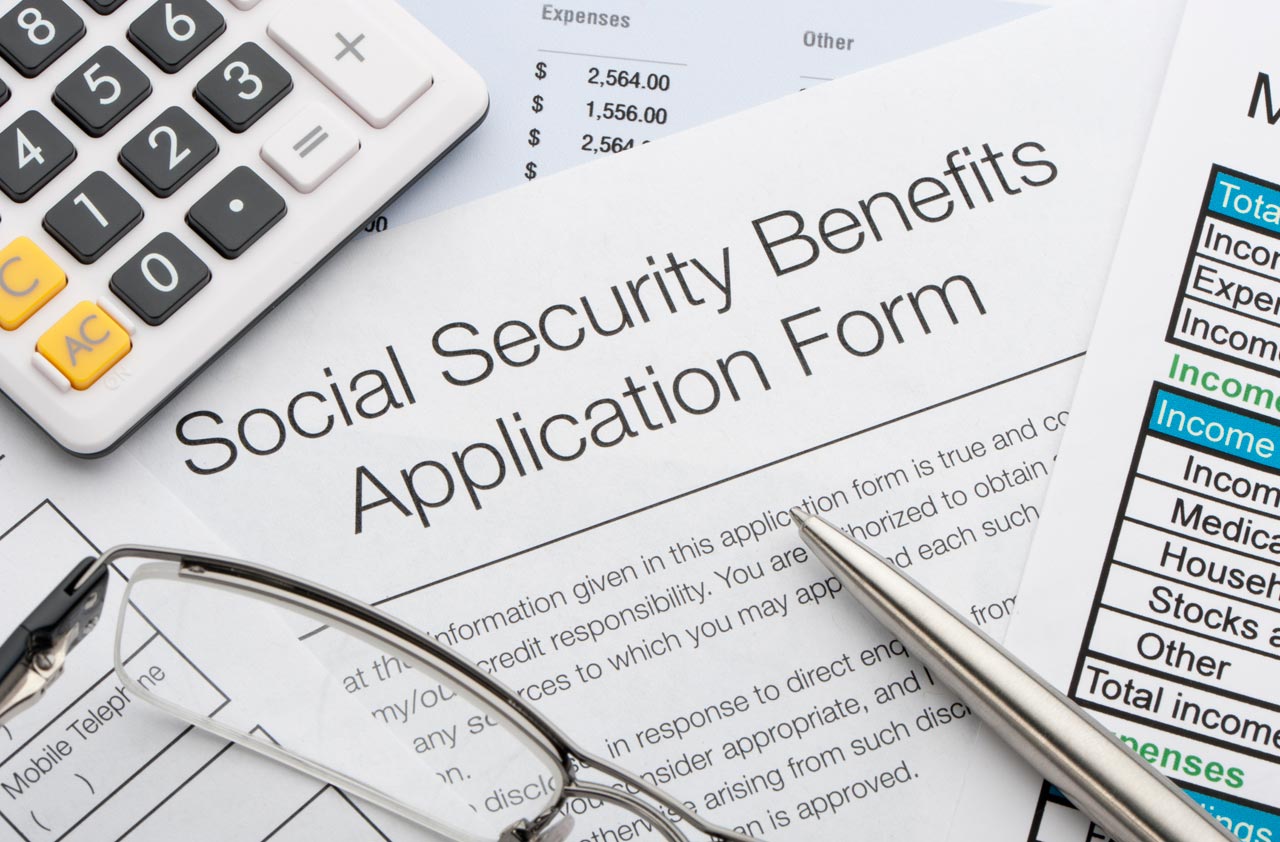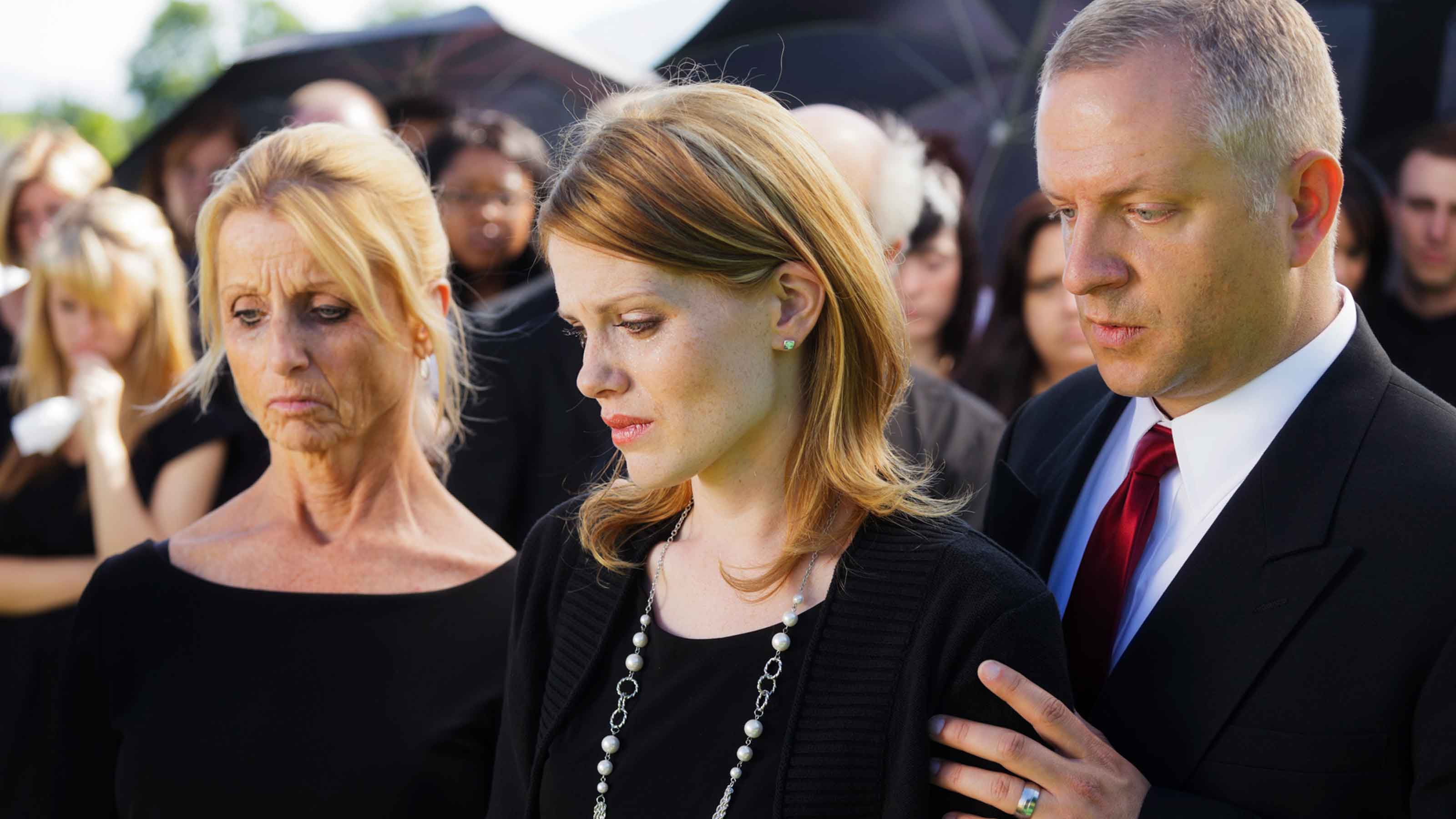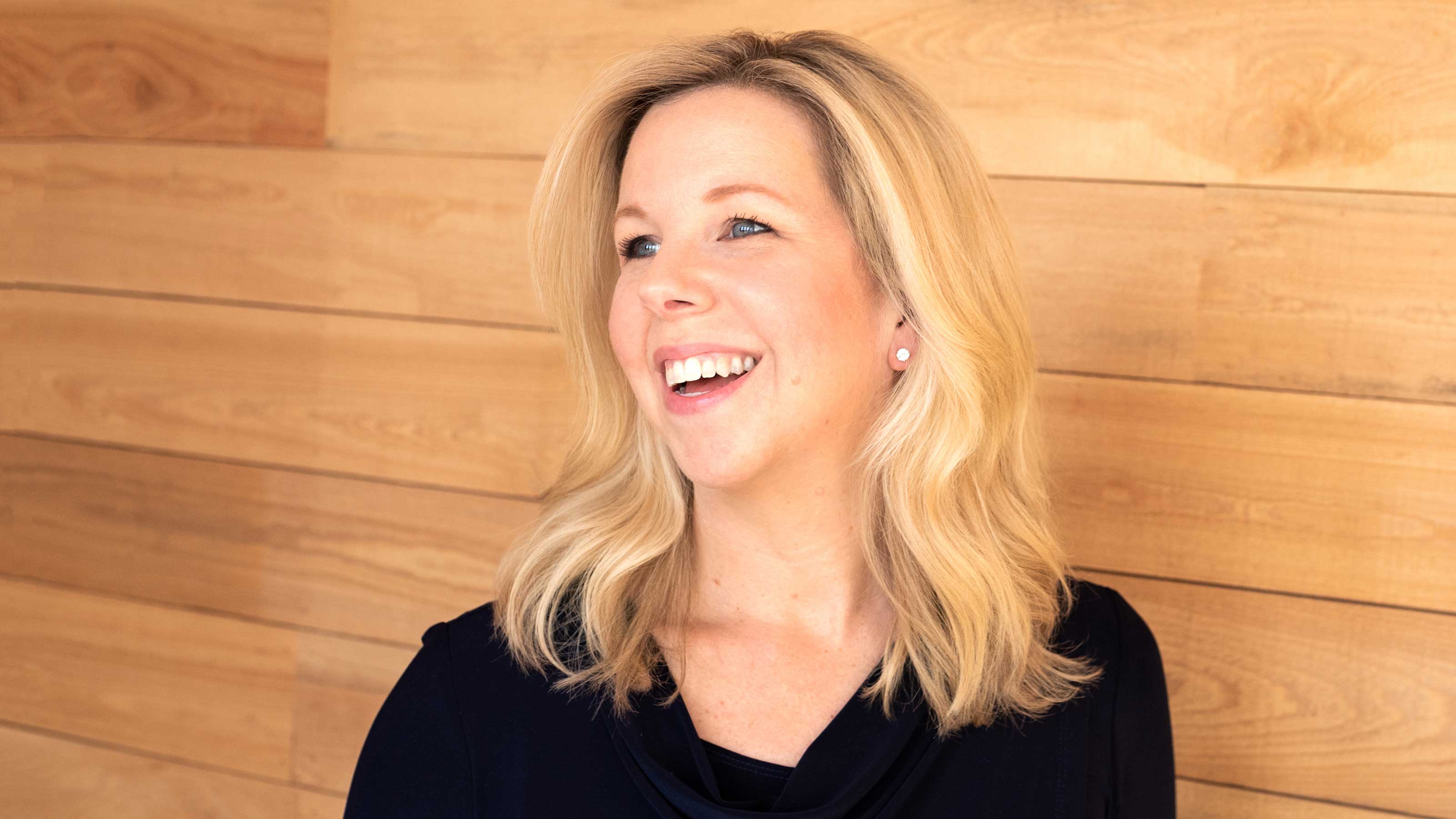When to Start Taking Your Social Security Benefits
Kiplinger senior editor Eileen Ambrose discusses when is the best time to take Social Security to help maximize your benefits. Also, our hosts Sandy Block and Ryan Ermey delve into cost-friendly ways to keep cool during a summer heat wave.

Profit and prosper with the best of Kiplinger's advice on investing, taxes, retirement, personal finance and much more. Delivered daily. Enter your email in the box and click Sign Me Up.
You are now subscribed
Your newsletter sign-up was successful
Want to add more newsletters?

Delivered daily
Kiplinger Today
Profit and prosper with the best of Kiplinger's advice on investing, taxes, retirement, personal finance and much more delivered daily. Smart money moves start here.

Sent five days a week
Kiplinger A Step Ahead
Get practical help to make better financial decisions in your everyday life, from spending to savings on top deals.

Delivered daily
Kiplinger Closing Bell
Get today's biggest financial and investing headlines delivered to your inbox every day the U.S. stock market is open.

Sent twice a week
Kiplinger Adviser Intel
Financial pros across the country share best practices and fresh tactics to preserve and grow your wealth.

Delivered weekly
Kiplinger Tax Tips
Trim your federal and state tax bills with practical tax-planning and tax-cutting strategies.

Sent twice a week
Kiplinger Retirement Tips
Your twice-a-week guide to planning and enjoying a financially secure and richly rewarding retirement

Sent bimonthly.
Kiplinger Adviser Angle
Insights for advisers, wealth managers and other financial professionals.

Sent twice a week
Kiplinger Investing Weekly
Your twice-a-week roundup of promising stocks, funds, companies and industries you should consider, ones you should avoid, and why.

Sent weekly for six weeks
Kiplinger Invest for Retirement
Your step-by-step six-part series on how to invest for retirement, from devising a successful strategy to exactly which investments to choose.
Ryan Ermey: You're eligible to take Social Security at 62, but should you? It turns out the vast majority of you are taking Social Security at the wrong time. Senior editor Eileen Ambrose is here to set you straight in our main segment. On today's show, Sandy and I tell you how to stay cool this summer without breaking the budget and we talk loyalty programs and Restaurant Week discounts in a new edition of deal or no deal. That's all ahead on this episode of Your Money's Worth. Stick around.
- Episode Length: 00:23:35
- Links and resources mentioned in this episode
- SUBSCRIBE: Apple Google Play Spotify Overcast RSS
Ryan Ermey: Welcome to Your Money's Worth. I'm Kiplinger's associate editor Ryan Ermey joined as always by senior editor Sandy Block, and Sandy are you keeping cool out there this summer?
Sandy Block: Man, Ryan, it is boiling here.
From just $107.88 $24.99 for Kiplinger Personal Finance
Become a smarter, better informed investor. Subscribe from just $107.88 $24.99, plus get up to 4 Special Issues

Sign up for Kiplinger’s Free Newsletters
Profit and prosper with the best of expert advice on investing, taxes, retirement, personal finance and more - straight to your e-mail.
Profit and prosper with the best of expert advice - straight to your e-mail.
Ryan Ermey: Yeah, it's a nationwide heat wave, which despite being one of my very favorite Motown songs is unpleasant for a lot of us who you know, don't like to be sweating all summer.
Sandy Block: That's right. We got a heat wave, but nobody's dancing in the streets.
Ryan Ermey: Hey, Martha and the Vandellas.
Sandy Block: Shout out to Motown.
Sandy Block: Mm-hmm . The other thing we've been having a very interesting discussion around the office about what temperature to set your thermostat at.
Ryan Ermey: Yes.
Sandy Block: And I've determined that everyone seems to think I'm living in a sweat lodge because I keep ours at 79 and I've heard it as low as 69 from some people. Several people said 75, 74 what do you keep yours on Ryan?
Ryan Ermey: We keep ours at like refrigerator-like temperatures, because our house has really uneven A/C, and so like in order to make the upstairs even remotely bearable, we have to blast it downstairs. Or at least that seems to be the philosophy among me and my roommates, but of course that ends up costing us quite a lot of money. Our colleague Miriam Cross in one of her stories wrote that turning up to the highest comfortable setting, and obviously that's going to be different-
Sandy Block: It's relative.
Ryan Ermey: ... for different people, but you can save up to 30% on your summer cooling costs if you go from the 69 that some people keep it at up to sort of your range.
Sandy Block: Well, and the other thing to think about, even if you can't bear to set it up at 77, 78, 79, is I think a lot of people use programmable thermostats in the winter-
Ryan Ermey: Yeah.
Sandy Block: ... but you can use it in the summer, too. If nobody's home all day, there's no reason to keep the temperature that low. You know, you could set it so that it raises the temperature while no one's home and lowers it when you get home. So you're not wasting energy that way.
Ryan Ermey: Right. And you know your electric utility may be willing to help out. Do you use Pepco?
Sandy Block: I'm on the other side of the river. I'm Dominion.
Ryan Ermey: Oh, I see. We use Pepco, and they have offered participants a peak demand program, $40 to $80 in bill credits prorated over five months of the cooling season, if you allow them to cycle their A/C on and off in your home. So that may be a way that you can get a little bit of help. And if all else fails, we've talked about doing a home energy audit.
Sandy Block: Right, right. Which can ... and it cost anywhere from $200 to $1,000. But it could pay off in lower energy bills if the energy audit shows you ways. And the last thing I'll mention, I don't know if you were ... actually I didn't have air conditioning when I was growing up, but I don't know, did your dad, Dave, ever yell at you not to leave the doors open and air condition the whole neighborhood?
Ryan Ermey: Yeah. Oh yeah, yeah. Don't air condition the outside.
Sandy Block: Right? Well you may be doing that even if you're not leaving the door open, and this is something an energy audit could tell you or you might just be able to figure it out for yourself. Make sure your window sashes are tightly closed. Look and see if you can see light around your doors. If that's the case, you may be air conditioning the neighborhood. So make sure you replace door sweeps and weather stripping as needed so the cool air stays inside.
Ryan Ermey: So yeah, just a couple of quick hitters here. We have more advice that we'll throw up on the show notes for you. I will say, my bedroom when I was growing up, it was like above the garage. So there was like no insulation whatsoever around it. So it was hot in the summer and the fan with the bucket of ice.
Sandy Block: Oh yeah, old school. That's what my parents did. Yeah.
Ryan Ermey: I mean-
Sandy Block: It works.
Ryan Ermey: ... it really, really works. Beyond that. Take our advice and stay cool this summer folks.
Ryan Ermey: Coming up. Eileen Ambrose tells you why you may be forgoing thousands of dollars in Social Security benefits. Don't go anywhere.
Ryan Ermey: We're back and we're here with senior editor Eileen Ambrose. Who has a fascinating story on when to take Social Security, coming in the upcoming September issue of Kiplinger's Personal Finance. And she's on here to talk about it. Eileen, thank you so much for coming.
Eileen Ambrose: Glad to be here.
Ryan Ermey: So before our thousands of millennial listeners tune out, we do think that Social Security is here to stay, right?
Eileen Ambrose: Yes. Social Security is here to stay. It's one of the most popular government programs and it's been the most successful at reducing poverty. So I don't think the top politicians will let it fail.
Ryan Ermey: So the crux of your column is that only about 4% of people take Social Security at the right time, which is a pretty eye-poppingly low number. What is the common mistake that people are making?
Eileen Ambrose: The big mistake is that people tend to take benefits early, and you could take them as early as 62. And that alone will just cut your benefits by 30% off the top, and the earlier you take it, you're not gonna get this really good benefit by delaying until age 70, which is for every year past your full retirement age, which is now 66 and a half for people in their early sixties, you'll get an 8% increase in your benefit. So that is just a lot of retirement income that you're leaving on the table.
Sandy Block: So Eileen, whenever we write about the benefits of delaying, I get an email or two or 10 from people-
Eileen Ambrose: That all?
Sandy Block: ... who say I'm going to take Social Security at 62 and invest the money and I will come out ahead. What's the problem with that strategy?
Eileen Ambrose: The problem is it's very hard for people to get great returns year after year. I mean Social Security is a guaranteed bump up in benefits. And Ryan, you probably could tell your listeners more than I can about how successful people are year after year getting great returns.
Ryan Ermey: Well, yeah, I mean it's definitely going to be tough. You really can't project what the market's going to do. I mean, if anything, if you're looking for 8% a year, you're probably gonna have to be mostly in stocks and the stock market is mercurial. The other argument that I think people tend to make for taking it early, is that their worried that the government could possibly change the policy, you know, between when they would take it at 62 and when they would take it at 70.
Eileen Ambrose: Yes, we hear that up quite a bit. All the proposals, all the serious proposals about changing Social Security, they all protect current retirees. So there'll be no change for them. And they also protect people who are 10 to 15 years away from retirement. So that's a lot of planning that you can do in between that time, so those people are safe.
Sandy Block: So Eileen, I know we very often recommend that people wait until at least full retirement age, which is 66 for most current boomers and 70 if possible, but it's obviously an individual decision. What factors should people take into account when deciding when they're going to claim benefits?
Eileen Ambrose: Your health. If you are in poor health and you're not going to have many decades in retirement, chances are you should be claiming benefits early. And also if you are forced into early retirement and you don't have the assets to live on other than Social Security or what little savings you have, then by all means take Social Security, but for the vast majority of people waiting until 70 would bring in the most income over the course of their retirement. In fact, the study found ... that they gave us the 4% figure, also said that retirees, current retirees, are forfeiting $111,000 per household over the course of their retirement because they took benefits early.
Sandy Block: One thing you mentioned in the story that I think is really interesting is that because of the way that the terminology that's used, I guess by Social Security, that a lot of people don't realize the real impact of claiming at 62 or 63.
Eileen Ambrose: Yeah, Social Security calls 62 the age of early eligibility. So there is this mindset, people think like I'm eligible, I should apply.
Sandy Block: Yeah, yeah, I hear that all the time.
Eileen Ambrose: So the authors of this study suggest that Social Security change the way they describe claiming ages, and one is to call 62 a minimum benefit age and call 70 the maximum benefit age. So that will get people thinking like what's the difference? And what does that mean for me?
Ryan Ermey: So I mean the upshot of all of this is that for the vast, vast majority of people waiting until 70 is the right thing to do if you can do it. And if people are thinking about it or doing this sort of classic back of the napkin calculation, what are some of the things that really factor in to that decision to wait until 70.
Eileen Ambrose: One thing they can do is they could go onto Social Security and open up an account with them and they could see actually how much they would earn, whatever age they claimed. So that could help them. But what they need to think about is, one is how long you'll live. Nobody knows, but if you have longevity in your family, that makes the case for taking benefits delaying until 70. If you're married, delaying is very important because you want to maximize that survivor benefit. When one of you dies, the other will go down to one Social Security check.
Ryan Ermey: Right.
Eileen Ambrose: And you want to make sure that check is as large as possible. So that is a reason to delay, and realize the longer you wait, the bigger your check will be.
Ryan Ermey: I mean, that's really the important thing, right?
Eileen Ambrose: Yes.
Ryan Ermey: So there you have it. So folks be sure to check out Eileen's piece. It's the Rethinking Retirement column in the upcoming issue of Kiplinger's Magazine. That's going to be the September issue. And be sure to check out all of our lovely retirement coverage on Kiplinger.com
Ryan Ermey: Your local Restaurant Week might sound enticing, but are you actually getting a good price? Find out from this former waiter after the break.
Ryan Ermey: We're back, and before we go, Sandy and I wanted to play another round of Deal or No Deal, relating to some fun summer stuff. Yours is travel-related, right, Sandy?
Sandy Block: Right. And mine is loyalty partnerships and this is definitely a deal if you know to take advantage of them. And what do you want to be looking out for is Uber and Lyft are competing very heavily to get more business. And one way they're doing that is by forming partnerships with hotels and airlines and anything else. And oftentimes you have to sign up for these things. So it's not like they're just going to give it to you. But if you do use these car sharing services frequently be on the lookout for some deals.
Sandy Block: And in our August issue, one of the ones that we highlight is a deal between Hilton and Lyft. Hilton and Lyft joined forces to reward Hilton honors members with two or three points for every dollar they spend on Lyft, depending on the type of ride. So maybe if you're doing one of the pools, you don't get the points.
Ryan Ermey: Right.
Sandy Block: But if you're using Lyft a lot already and you're a loyalty member with Hilton, why not sign up and get some extra points? You know, you get a nicer room, you could save some money. And as I said, keep an eye out for more of these deals because this is the way that all of these providers are trying to build business. And it doesn't cost you anything.
Ryan Ermey: And you know, I'll tell you what, a couple of times I've gotten emails from the ridesharing companies I use to say look how many miles and how many dollars-
Sandy Block: Oh yeah.
Ryan Ermey: ... you've spent on ridesharing, and it's like, I absolutely don't want to know. I could have probably bought a Camaro, if not insured it or whatever. So my Deal or No Deal is, it's a deal that a lot of people are going to be seeing. In the last 10 years or so, this idea of Restaurant Week-
Sandy Block: Oh yeah.
Ryan Ermey: ... has really, really a proliferated from sort of ... I think it started in bigger cities, but it's now really all over the place. And a lot of them take place in late-July and through August and even September.
Sandy Block: Because that's I guess the slow season for a lot of restaurants and they're trying to get more people to come in?
Ryan Ermey: Right, and it's an opportunity for the restaurant industry to sort of band together and get people out and eating out. Now I used to write a column for Kiplinger's called Inside Scoop, which was inspired by my time working in restaurants, you know, talking to people who work in these businesses to figure out how to save you money. And I remembered distinctly that I had talked to a bunch of people and one of my managers at the restaurant I worked at said quote, "Restaurant Week is a joke." And I was like, oh my God. So most restaurants don't really like to do it. The staff hates it, the kitchen hates it. And the reason is that a lot ... so what happens is that it's a prix fixe menu.
Sandy Block: Right. You usually get like dinner, appetizer and a dessert or something.
Ryan Ermey: Yeah, so for dinner it's usually three courses, for lunch it's two, for D.C.'s it's $22 for lunch or brunch, $35 for dinner. For New York's, which is actually beginning the day that this is coming out, if you haven't already made your reservations folks, $26 for a two-course lunch, $42 for a three-course dinner. Obviously that's going to be different in, you know, Scranton or whatever.
Sandy Block: Which sounds like a good deal. I mean in a city like D.C.
Ryan Ermey: Yeah, and it is depending on what you get, and this is where the sort of money-saving advice comes in, because a lot of restaurants ... you know it's a tight margin business. They're not in the business of giving away food for less than they can usually sell it for if they can help it usually. So what a lot of restaurants do is they roll out their prix fixe menu, which is not really related to anything on their normal menu.
Sandy Block: Uh-huh (affirmative).
Ryan Ermey: They put out a special menu that has smaller portions, more economical margins essentially for the restaurant. So you're not really getting a deal, you're getting kind of like a crappy side salad for your appetizer and the half portion of fish that you would usually get.
Sandy Block: Yeah, yeah.
Ryan Ermey: So here's what you do. You go see ... almost every one of these Restaurant Weeks is going to have a sort of aggregating website to show you who is participating, and narrow it down to some of the restaurants that you like and look up, you know, go on their websites and look up what they're actually offering. Compare the prix fixe Restaurant Week menu with the normal dinner menu. Now it's like one of these things where you're not actually like quote unquote saving money by going out and having a $35 dinner. Like it's still a $35 dinner, you know?
Sandy Block: Right.
Ryan Ermey: But if you're the kind of person and I am who likes to go out and have a nice meal every once in a while, saving a few bucks on it can be really nice and make the night special. So a couple examples that I've done in the past, Capitol Grille. I looked on their Restaurant Week menu. Their Restaurant Week menu has a 14-ounce New York strip on it, and on the regular menu, that same exact cut, same ounces, whatever, is $48. So you're already coming out quite ahead.
Sandy Block: Yeah, yeah.
Ryan Ermey: If there's overlap between the normal menu and the Restaurant Week menu and you can see what that difference is, that's always a good way to do it. Others like Fogo de Chão, and you ever been to Fogo de Chão?
Sandy Block: Is that the one where they give you all the meat?
Ryan Ermey: It's like a, yeah, it's-
Sandy Block: Big, big pillars of meat.
Ryan Ermey: Exactly.
Sandy Block: Yeah.
Ryan Ermey: Exactly.
Sandy Block: I went there one time.
Ryan Ermey: So that's usually about $60 bucks for dinner.
Sandy Block: Right.
Ryan Ermey: But during Restaurant Week they knock it down to $39.
Sandy Block: And you still get the big pillars of meat.
Ryan Ermey: Exactly. All you can eat, you know you get a little coaster on the table. They just keep bringing it. They slice off with a sword for you.
Sandy Block: Yeah, it's kind of, yeah, it's kind of-
Ryan Ermey: It's totally gluttonous, but you know, it's wonderful. And of course when you're thinking about these things, obviously, you know, $35 bucks, that doesn't sound like too big a bill, but of course that doesn't include-
Sandy Block: Alcohol.
Ryan Ermey: ... a drink, which is often a part of your bill at one of these things. My advice about that is call ahead and ask about corkage fees.
Sandy Block: Ooh, good tip.
Ryan Ermey: A lot of restaurants and bars don't advertise their corkage fee, but a lot of times it's really reasonable. A lot of fancy places they'll give you ... I mean the restaurant I used to work at I think used to give you two bottles free, through the door, before they started charging for corkage.
Sandy Block: So you could bring your own wine.
Ryan Ermey: Exactly. Bring your own wine, bring some nice stuff, but you know you're not paying the humongous restaurant markup. You know the only rules of thumb ... and even if you're bringing in, you know, for the $10, $15 corkage fee, that can still beat going to a place with a wine list where the cheapest bottle is $80 bucks.
Sandy Block: Right. Right.
Ryan Ermey: The only rules of thumb for that is don't bring a bottle that's already on the restaurant's wine list, which is pretty unlikely, but happens and-
Sandy Block: You're not going to have that in your-
Ryan Ermey: ... it's generally considered a faux pas. The other is, you know, don't bring in the jug of Carlo Rossi.
Sandy Block: Riunite.
Ryan Ermey: Mad Dog 2020.
Sandy Block: Yeah, that kind of tips off ... they're going to ... well this is so interesting Ryan, because I think a lot of people, and I've done this myself, view Restaurant Week as a way to try out a restaurant they normally wouldn't go to.
Ryan Ermey: Yeah.
Sandy Block: But if what you're saying is in some cases they're sort of giving you their second-tier meal, you're really not getting the full, you know, you're not getting the benefit of the restaurant, you're getting kind of the equivalent of like Sunday brunch.
Ryan Ermey: Yeah. You're not getting the deal you want and you're not getting the experience you want. You know, the restaurant a lot of times isn't really putting its best foot forward and you can see why it's this like forced margin that you gotta get under, all the servers hate it-
Sandy Block: Oh yeah.
Ryan Ermey: ... because people tip on the Restaurant Week amount instead of what you'd actually be paying. So, you know-
Sandy Block: It's so interesting because I remember years ago going out during Restaurant Week to a pretty popular restaurant in D.C. And the waiter was so condescending and dismissive, and we all assumed it was because we were a group of women. But now I'm thinking maybe it's because it was Restaurant Week.
Ryan Ermey: He knew that his tip was about to be garbage.
Sandy Block: Yeah, I think he got fired. He was horrible, but thinking back, maybe we were unfairly tarring him as a chauvinist when in fact he was just disgruntled because of Restaurant Week.
Ryan Ermey: So yeah, there you have it. Those are the the guidelines. I think I have a couple more tips in that article that are worth checking out and I'll see if I can track it down, but as our advice always is when it comes to deals, do a little research, shop around, and you can make Restaurant Week into an actual deal and not-
Sandy Block: Bon appétit.
Ryan Ermey: That'll do it for this episode of Your Money's Worth for show notes and more great Kiplinger content on the topics we discussed on today's show, visit kiplinger.com/links/podcasts. You can stay connected with us on Twitter, Facebook or by emailing us at podcast@kiplinger.com. And if you like the show, please remember to rate, review, and subscribe to Your Money's Worth wherever you get your podcasts. Thanks for listening.
Links and resources mentioned in this episode
Profit and prosper with the best of Kiplinger's advice on investing, taxes, retirement, personal finance and much more. Delivered daily. Enter your email in the box and click Sign Me Up.

Block joined Kiplinger in June 2012 from USA Today, where she was a reporter and personal finance columnist for more than 15 years. Prior to that, she worked for the Akron Beacon-Journal and Dow Jones Newswires. In 1993, she was a Knight-Bagehot fellow in economics and business journalism at the Columbia University Graduate School of Journalism. She has a BA in communications from Bethany College in Bethany, W.Va.
-
 Ask the Tax Editor: Federal Income Tax Deductions
Ask the Tax Editor: Federal Income Tax DeductionsAsk the Editor In this week's Ask the Editor Q&A, Joy Taylor answers questions on federal income tax deductions
-
 States With No-Fault Car Insurance Laws (and How No-Fault Car Insurance Works)
States With No-Fault Car Insurance Laws (and How No-Fault Car Insurance Works)A breakdown of the confusing rules around no-fault car insurance in every state where it exists.
-
 7 Frugal Habits to Keep Even When You're Rich
7 Frugal Habits to Keep Even When You're RichSome frugal habits are worth it, no matter what tax bracket you're in.
-
 PODCAST: Defusing the Retirement “Tax Bomb” with David McClellan
PODCAST: Defusing the Retirement “Tax Bomb” with David McClellanTax Breaks If you’ve dutifully socked away money in a 401(k) or IRA for years, you could be in for an unpleasant shock when it comes time to take money out of those accounts. Also, the IRS is sending out a surprise round of checks.
-
 PODCAST: The “Gray Resignation” with Liz Windisch
PODCAST: The “Gray Resignation” with Liz WindischMaking Your Money Last Pandemic pressures (and high stock and real estate values) are leading many to try to move up retirement. Plus, tax-filing season gets under way.
-
 PODCAST: The Pros and Cons of Target Date Funds with Tony Drake
PODCAST: The Pros and Cons of Target Date Funds with Tony DrakeFinancial Planning The simplicity of target date funds has made them popular, particularly among 401(k) savers. But investors may be paying a price.
-
 PODCAST: Oh Unlucky Heirs with Tim Steffen
PODCAST: Oh Unlucky Heirs with Tim SteffenFinancial Planning Just because you’re in the will doesn’t mean you’re sitting pretty. Also: Does October deserve its scary reputation for stocks?
-
 PODCAST: The Ins and Outs of IRAs with Ed Slott, CPA
PODCAST: The Ins and Outs of IRAs with Ed Slott, CPARoth IRA Conversions Are you saving for retirement? Good start. But almost everyone has something to learn about optimizing their individual retirement account from IRA strategist Ed Slott. Also, the next round of retirement-planning changes Congress is eyeing.
-
 PODCAST: How Annuities Could Work for You
PODCAST: How Annuities Could Work for YouFinancial Planning No doubt, investing in annuities can be a tough call for the active investor. But there comes a time when relinquishing some control in exchange for reliable income can be a wise move. Also: remembering the biggest financial fraud in history.
-
 PODCAST: Estate-Planning Your Stuff with T. Eric Reich
PODCAST: Estate-Planning Your Stuff with T. Eric ReichEmpty Nesters What to do with the house, the vacation house and the china? We talk with a financial adviser who's got some wise counsel. Also, who makes up the so-called Generation I?
-
 PODCAST: Having the Money Talk with Your Parents, with Cameron Huddleston
PODCAST: Having the Money Talk with Your Parents, with Cameron HuddlestonFinancial Planning for Alzheimer's Managing your parents' finances can be a difficult situation. Doing so if you haven't laid down a plan for how to do it is worse.

